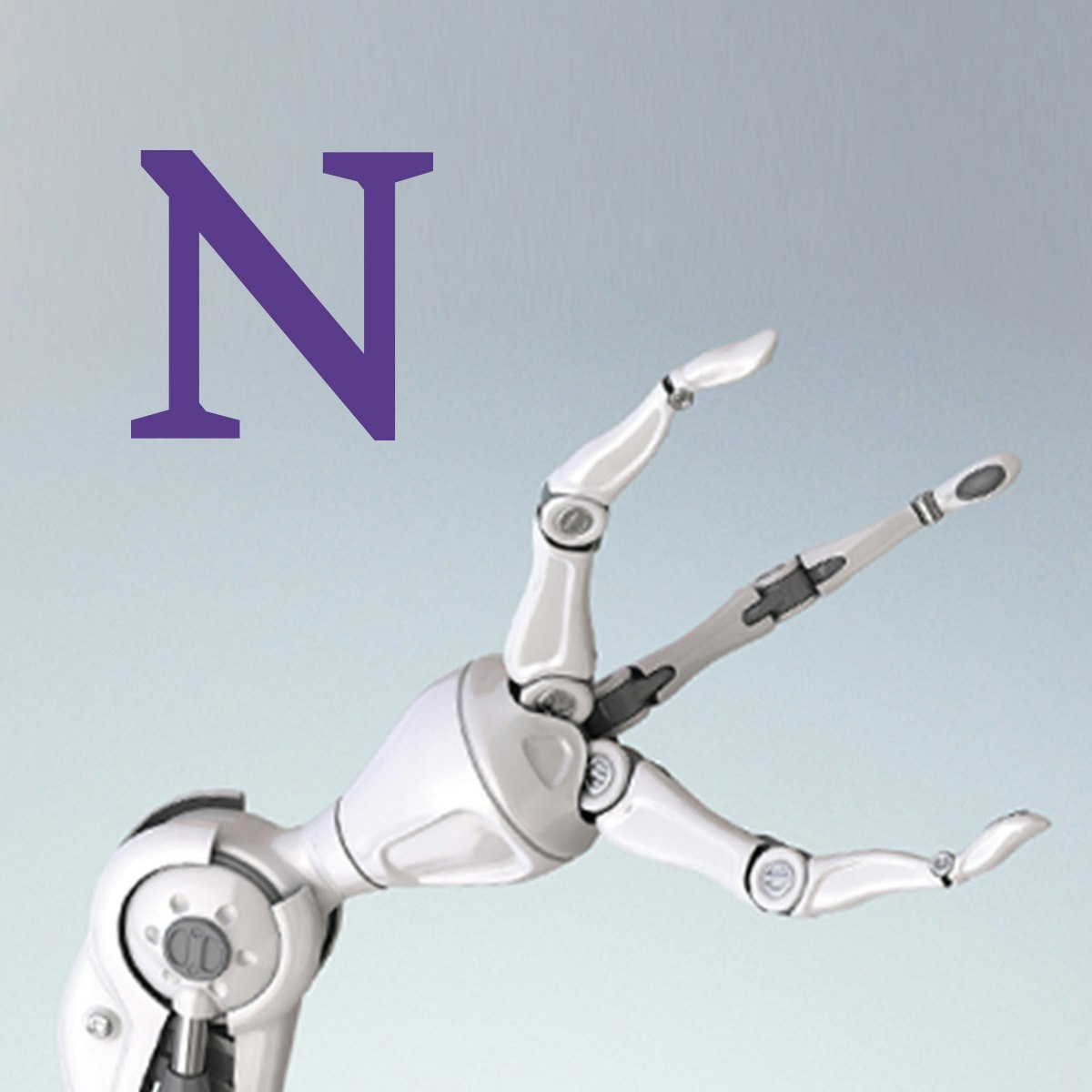
로봇이 어떻게 작동하는지 궁금하신가요? 로봇공학 커리어에 관심이 있으신가요? 로봇공학의 모든 하위 분야에서 사용되는 기초적인 수학적 모델링 기법을 열심히 학습할 준비가 되셨나요?
그렇다면, ‘현대 로봇공학: 역학, 계획 및 제어(Modern Robotics: Mechanics, Planning, and Control)’ 전문 과정이 여러분에게 안성맞춤일 수 있습니다. 이 전문 과정은 여섯 개의 짧은 강의로 이루어져 있으며, 로봇공학 분야에서 근무하기를 진지하게 희망하거나 심화 연구를 진행하려는 학생들에게 적합합니다. 단순한 기초 모음집이 아닙니다.
Read more
로봇이 어떻게 작동하는지 궁금하신가요? 로봇공학 커리어에 관심이 있으신가요? 로봇공학의 모든 하위 분야에서 사용되는 기초적인 수학적 모델링 기법을 열심히 학습할 준비가 되셨나요?
그렇다면, ‘현대 로봇공학: 역학, 계획 및 제어(Modern Robotics: Mechanics, Planning, and Control)’ 전문 과정이 여러분에게 안성맞춤일 수 있습니다. 이 전문 과정은 여섯 개의 짧은 강의로 이루어져 있으며, 로봇공학 분야에서 근무하기를 진지하게 희망하거나 심화 연구를 진행하려는 학생들에게 적합합니다. 단순한 기초 모음집이 아닙니다.
로봇이 어떻게 작동하는지 궁금하신가요? 로봇공학 커리어에 관심이 있으신가요? 로봇공학의 모든 하위 분야에서 사용되는 기초적인 수학적 모델링 기법을 열심히 학습할 준비가 되셨나요?
그렇다면, ‘현대 로봇공학: 역학, 계획 및 제어(Modern Robotics: Mechanics, Planning, and Control)’ 전문 과정이 여러분에게 안성맞춤일 수 있습니다. 이 전문 과정은 여섯 개의 짧은 강의로 이루어져 있으며, 로봇공학 분야에서 근무하기를 진지하게 희망하거나 심화 연구를 진행하려는 학생들에게 적합합니다. 단순한 기초 모음집이 아닙니다.
이 전문 과정의 강좌 4 ‘로봇 동작 계획 및 제어’에서는, 단순 맛보기가 아니라 로봇 운동 생성의 핵심 개념들을 배우게 될 겁니다.장애물이 있는 환경에서 로봇의 운동을 계획하고, 실시간으로 피드백을 제어하여 계획한 운동을 추적하는 것이죠. ‘현대 로봇공학’ 교과서의 챕터 10 ‘운동 계획’은 배위 공간, 그래프와 트리, 그래프 서치 등 기본적인 내용을 다룹니다. 그리고 그리드 기반의 운동 계획, 무작위 샘플링 기반 설계자, 가상 퍼텐셜 장 등 고전적 방식과 현대적 방식을 아우르는 운동 계획 기법들 역시 다룹니다. 챕터 11 ‘로봇 제어’는 운동 제어, 힘 제어, 하이브리드 운동-힘 제어를 다룹니다.
이 강좌는 교과서 ‘Modern Robotics: Mechanics, Planning, and Control’(Lynch 및 Park, Cambridge University Press 2017)에 따라 제작되었습니다. 이 책을 구매하시거나 무료 pdf 견본을 사용하실 수 있습니다. 여러분이 원하는 언어(Python, Mathematica, 및 MATLAB)를 선택하여 로봇공학 소프트웨어의 라이브러리를 구축하실 수 있습니다. 또한 무료 크로스 플랫폼 로봇 시뮬레이터 V-REP를 사용해서 최첨단 로봇공학 작업을 집에서도 편하게 무료로 수행하실 수 있습니다.
What's inside
Syllabus
챕터 10: 운동 계획(파트 1/2)
배위 공간 장애물, 그래프와 트리, 그리고 A* 그래프 서치.
챕터 10: 운동 계획(파트 2/2)
이산화된 배위 공간에서의 운동 계획, 무작위 샘플링 기반 설계자, 가상 퍼텐셜 장, 비선형 최적화.
Read more
Syllabus
Good to know
Save this course
Activities
로봇공학 분야 멘토 찾기
Show steps
멘토의 지도와 지원을 받아 학습 과정을 개선하고 로봇공학 커리어 목표를 향해 나아갈 수 있습니다.
Show steps
-
멘토링 프로그램 또는 플랫폼 탐구하기
-
잠재적 멘토 식별하기
-
연락하고 멘토링 관계 구축하기
로봇공학 소프트웨어 라이브러리 구축하기
Show steps
선택한 언어로 로봇공학 소프트웨어 라이브러리에 익숙해져 코스에 필요한 기술적 기반을 구축합니다.
Show steps
-
선호 언어로 로봇공학 라이브러리 선택하기
-
설치 및 구성하기
-
기본 튜토리얼 또는 문서 검토하기
V-REP를 사용하여 로봇 시뮬레이션 수행하기
Show steps
V-REP를 통해 로봇 시뮬레이션의 기본 사항을 익혀 실제 로봇 작업에 필요한 개념을 이해하는 데 도움이 됩니다.
Show steps
-
기본 튜토리얼 또는 설명서 검토하기
-
V-REP 소프트웨어 설치하기
-
간단한 로봇 모델 가져오기 또는 만들기
-
간단한 시뮬레이션 실행하기
Two other activities
Expand to see all activities and additional details
Show all five activities
로봇공학 워크숍 또는 세미나 참석하기
Show steps
로봇공학 전문가와 네트워크를 구축하고 새로운 기술을 익히며, 업계 최신 정보와 동향에 대해 알아보는 기회를 제공합니다.
Show steps
-
관련 워크숍 또는 세미나 찾기
-
등록하고 참석하기
-
전문가와 교류하고 학습하기
지역 로봇공학 클럽 또는 팀에서 자원 봉사하기
Show steps
실제 로봇 프로젝트에 참여하고 실무 경험을 쌓아 로봇공학 분야에 대한 이해도를 높입니다.
Show steps
-
지역 로봇공학 클럽 또는 팀 찾기
-
자원봉사 기회에 문의하기
-
프로젝트에 참여하고 경험 쌓기
로봇공학 분야 멘토 찾기
Show steps
멘토의 지도와 지원을 받아 학습 과정을 개선하고 로봇공학 커리어 목표를 향해 나아갈 수 있습니다.
Show steps
- 멘토링 프로그램 또는 플랫폼 탐구하기
- 잠재적 멘토 식별하기
- 연락하고 멘토링 관계 구축하기
로봇공학 소프트웨어 라이브러리 구축하기
Show steps
선택한 언어로 로봇공학 소프트웨어 라이브러리에 익숙해져 코스에 필요한 기술적 기반을 구축합니다.
Show steps
- 선호 언어로 로봇공학 라이브러리 선택하기
- 설치 및 구성하기
- 기본 튜토리얼 또는 문서 검토하기
V-REP를 사용하여 로봇 시뮬레이션 수행하기
Show steps
V-REP를 통해 로봇 시뮬레이션의 기본 사항을 익혀 실제 로봇 작업에 필요한 개념을 이해하는 데 도움이 됩니다.
Show steps
- 기본 튜토리얼 또는 설명서 검토하기
- V-REP 소프트웨어 설치하기
- 간단한 로봇 모델 가져오기 또는 만들기
- 간단한 시뮬레이션 실행하기
로봇공학 워크숍 또는 세미나 참석하기
Show steps
로봇공학 전문가와 네트워크를 구축하고 새로운 기술을 익히며, 업계 최신 정보와 동향에 대해 알아보는 기회를 제공합니다.
Show steps
- 관련 워크숍 또는 세미나 찾기
- 등록하고 참석하기
- 전문가와 교류하고 학습하기
지역 로봇공학 클럽 또는 팀에서 자원 봉사하기
Show steps
실제 로봇 프로젝트에 참여하고 실무 경험을 쌓아 로봇공학 분야에 대한 이해도를 높입니다.
Show steps
- 지역 로봇공학 클럽 또는 팀 찾기
- 자원봉사 기회에 문의하기
- 프로젝트에 참여하고 경험 쌓기
Career center
Robotics Engineer
Control Systems Engineer
Mechatronics Engineer
Computer Vision Engineer
Automation Engineer
Manufacturing Engineer
Software Engineer
Systems Analyst
Electrical Engineer
Mechanical Engineer
Data Scientist
Project Manager
Operations Research Analyst
Business Analyst
Technical Writer
Reading list
Share
Similar courses
OpenCourser helps millions of learners each year. People visit us to learn workspace skills, ace their exams, and nurture their curiosity.
Our extensive catalog contains over 50,000 courses and twice as many books. Browse by search, by topic, or even by career interests. We'll match you to the right resources quickly.
Find this site helpful? Tell a friend about us.
We're supported by our community of learners. When you purchase or subscribe to courses and programs or purchase books, we may earn a commission from our partners.
Your purchases help us maintain our catalog and keep our servers humming without ads.
Thank you for supporting OpenCourser.



